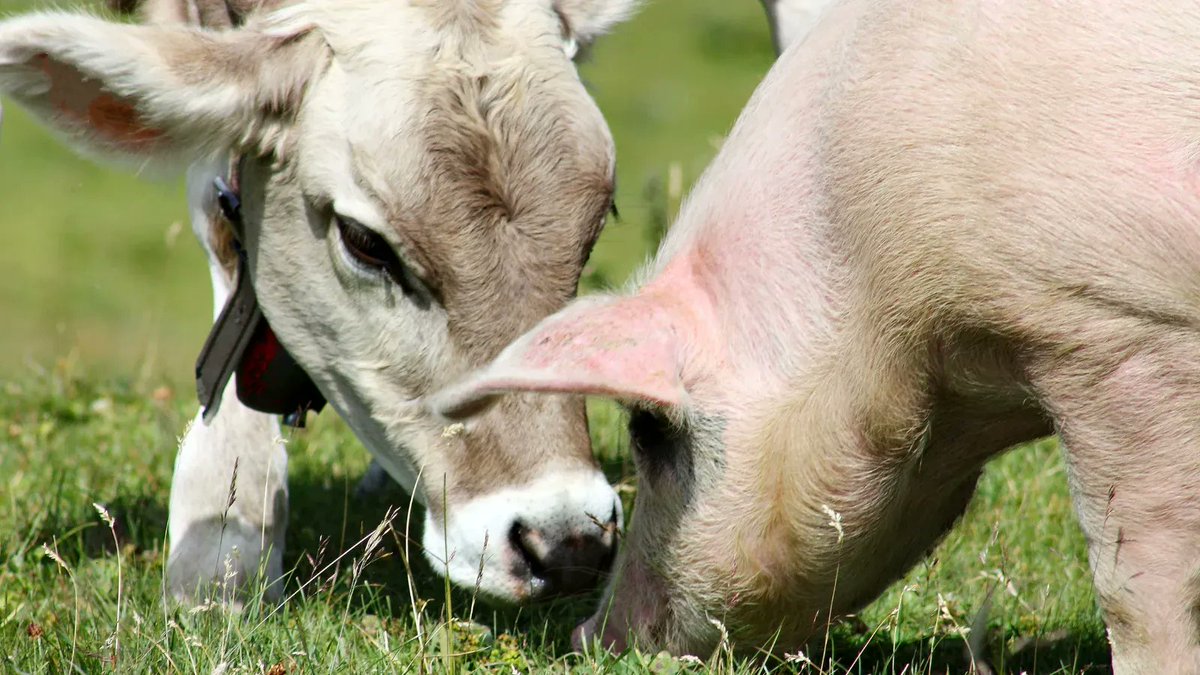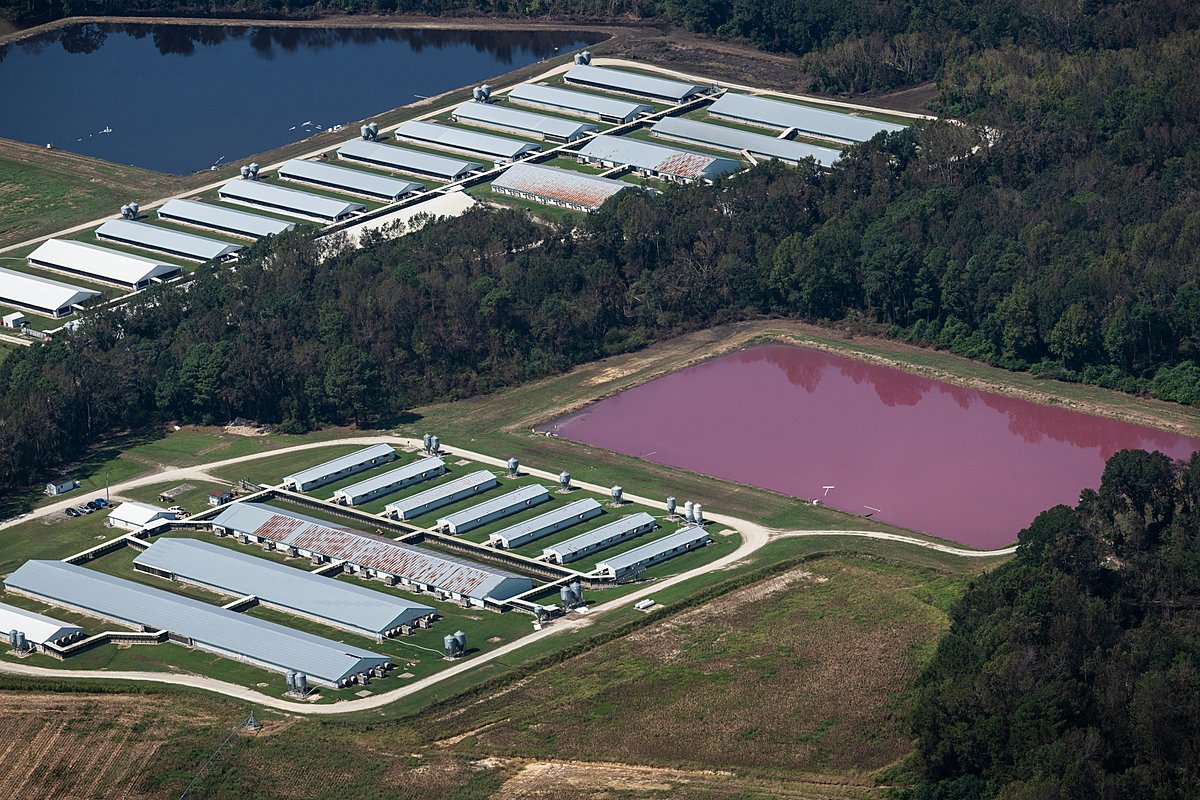
The Netherlands is one of the only countries committed to scaling down its livestock sector.
The decision is motivated by a severe pollution crisis but far-right influencers have latched onto this issue, spreading misinformation.👇 #stikstofcrisis 1/11
The decision is motivated by a severe pollution crisis but far-right influencers have latched onto this issue, spreading misinformation.👇 #stikstofcrisis 1/11
In a viral video, @rustyrockets described the pollution crisis as a “scam” claiming the Netherlands aims "to bankrupt the farmers, so their land can be grabbed"
@guardian columnist @GeorgeMonbiot explains why these claims are damaging & misleading. 2/11
@guardian columnist @GeorgeMonbiot explains why these claims are damaging & misleading. 2/11
The Netherlands has a nitrate crisis because of its livestock sector.
With around 3.8 million cows, 11 million pigs & 100 million chickens, the country has the highest density of livestock in Europe, more than four times that of the UK. @tom_levitt 3/11
theguardian.com/environment/20…
With around 3.8 million cows, 11 million pigs & 100 million chickens, the country has the highest density of livestock in Europe, more than four times that of the UK. @tom_levitt 3/11
theguardian.com/environment/20…
"What happens is that you bring in nutrients from all over the world to feed to your pigs, your chickens, your cows in big steel sheds," explains @GeorgeMonbiot.
"They poop out a lot of those nutrients, and then you've got to put them somewhere." 4/11
"They poop out a lot of those nutrients, and then you've got to put them somewhere." 4/11

When farmers spread the waste over their fields, the soil and plants can't absorb all of the nutrients.
The dumped manure then washes off into rivers, where it causes eutrophication, harming and, in many cases, killing plants and animals living in polluted waterbodies. 5/11
The dumped manure then washes off into rivers, where it causes eutrophication, harming and, in many cases, killing plants and animals living in polluted waterbodies. 5/11

Since the 1980s, Dutch governments have been aware of this crisis but didn't act because of strong farmer lobbyism.
In 2019, however, the nation's highest administrative court ruled that the failure to tackle nitrogen pollution conflicts with EU law. 6/11
sentientmedia.org/what-the-media…
In 2019, however, the nation's highest administrative court ruled that the failure to tackle nitrogen pollution conflicts with EU law. 6/11
sentientmedia.org/what-the-media…
The Dutch government offered various routes to farmers and other polluters to help address the crisis.
In 2021, the country unveiled a €25 billion plan to buy out up to 3,000 farms and major industrial polluters. @tom_levitt @guardian 7/11
theguardian.com/environment/20…
In 2021, the country unveiled a €25 billion plan to buy out up to 3,000 farms and major industrial polluters. @tom_levitt @guardian 7/11
theguardian.com/environment/20…
The far-right has latched on to the issue, spreading anti-immigrant misinformation.
On @FoxNews, @EvaVlaar told @TuckerCarlson that the Dutch government was stealing the farmers’ land because “they want it to house new immigrants.” @aliciasadowski6 8/11
mediamatters.org/tucker-carlson…
On @FoxNews, @EvaVlaar told @TuckerCarlson that the Dutch government was stealing the farmers’ land because “they want it to house new immigrants.” @aliciasadowski6 8/11
mediamatters.org/tucker-carlson…
"I don't really know what has happened to [@rustyrockets]," @GeorgeMonbiot says.
"My guess is that that is where the audience is. If you want a huge guaranteed audience, you spout far-right conspiracy theories [...]. To see Russell spreading it is heartbreaking." 9/11
"My guess is that that is where the audience is. If you want a huge guaranteed audience, you spout far-right conspiracy theories [...]. To see Russell spreading it is heartbreaking." 9/11
"The far-right has always championed farmers," Monbiot explains.
"As with the current situation in the Netherlands, some farmers have happily embraced that and have joined forces, quite explicitly, with the white supremacists and fascists who claim to be defending [them]." 10/11
"As with the current situation in the Netherlands, some farmers have happily embraced that and have joined forces, quite explicitly, with the white supremacists and fascists who claim to be defending [them]." 10/11
At Sentient Media, we tackle disinformation and create transparency around the underreported issues of animal agriculture.
Subscribe to our newsletter to stay updated on the latest reporting.👇11/11 sentientmedia.org/newsletter
Subscribe to our newsletter to stay updated on the latest reporting.👇11/11 sentientmedia.org/newsletter
• • •
Missing some Tweet in this thread? You can try to
force a refresh










